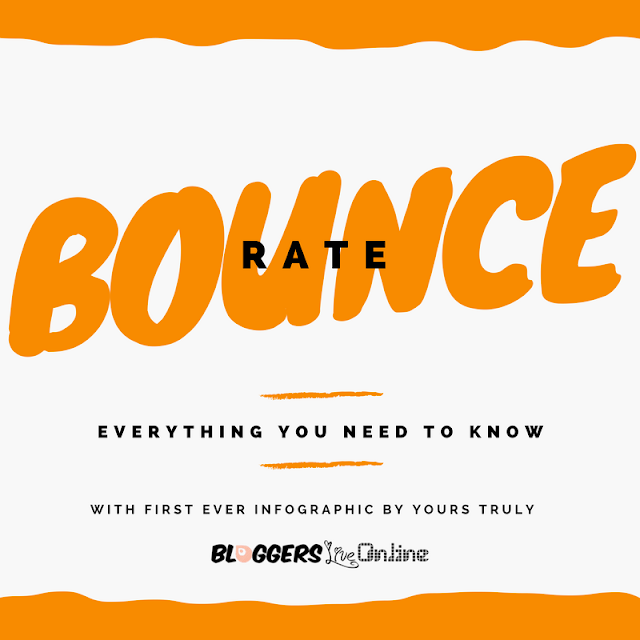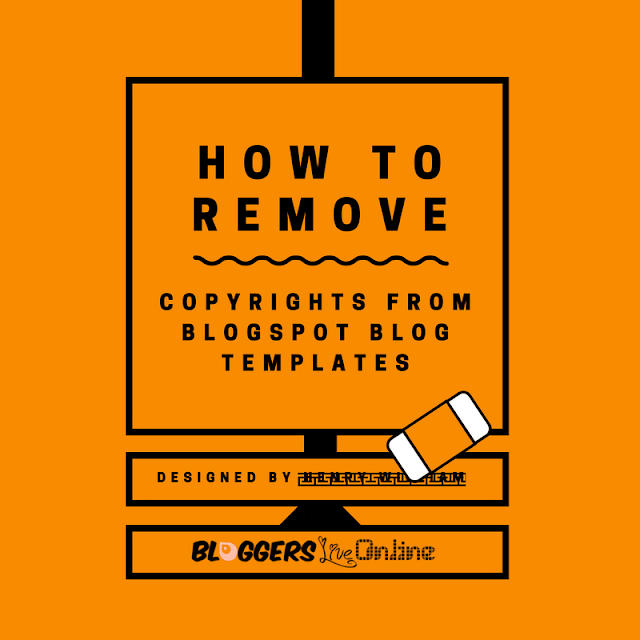Bounce Rate - What You Need to Know (Infographic)
Bounce Rate
Have you guys ever hear about your bounce rate? Do you know what it is? No? Then don't worry. Bounce rate is a term used by Google Analytics. It shows you the percentage of single-page visits. Still, don't understand? Let me simplify it.
Bounce rate shows the percentage of visits of people when they just open a single page and don't continue reading or browsing any other pages. So, if the bounce rate is high, then that means that people don't stay on your site for long and like a ball, they open the site/blog barely stay on it and don't continue, and leave almost immediately.
So, this means that unless alongside your content, you don't make the rest of your site interesting, people probably won't convert, which means that they won't go ahead to browse other pages of your site.
What Are The Problems and How Can I Fix Them??
Since you want people to convert and continue to complete actions and to visit other pages of your site, firstly you have to work on your site. Let me give you a few pointers.
And in the equation above, Rb stands for bounce rate, Tv stands for the total visitors on one page only which is divided by Te, which stands for Total entries to a page.
- Content Issues- Whenever you write a post, you have to make sure that you are always sticking to the point. Any long and irrelevant content can irritate people causing them to leave your site. The content should also be well researched and detailed, but not too long. Also, beware of grammatical mistakes, lack of information, and stuff that just shouldn't be there.
- Webpage Layout- As I have stated in the infographic that if people think that your web page layout is poor, unprofessional, unresponsive (not adaptable to different device screens), looks childish or anything else that makes it look bad, because people may feel uncomfortable staying on your web page. Also, use clear font and font size, try not to make it too flashy.
- Irritating Objects- The most irritating things when we enter a site are also the things that are most likely to drive us away. Things like pop-up ads, bothering people with continuous requests to do things, surveys, on-click ads, unnecessary advertisements, etc.
- Lack of Tools- You should always remember that people who come looking for information, like things to be easily approachable and available. Forgetting to avail things like search bars, navigation menus, indexes, etc. can have a negative effect.
- Other Things- Some other important things that you should never forget are
- Try to have less external links and more internal links so that you increase your chances to maintain more people in the loop of your site.
- Having slow loading times has a very huge effect on web pages so try to make it load faster.
- Make sure that you do not have too many plugins and that your site can work good and fast on its own.
- Aiming for a target audience is very important. Inviting 20 people interested in your content is better than inviting 100 uninterested people who are likely to leave.
- Fewer ads and cluttering objects can beautify your site greatly.
- Another very important thing is that you should always to add a few, (not too many) call-to-actions like forms and buttons allowing people more options and chances to convert.
What Counts As A Bounce?
If you are planning on reducing your bounce rate, you should first know how a bounce is actually counted.
- Having external links allow people to jump onto other sites, leaving your site behind in the dust, which counts as a bounce. To prevent that you need more internal links than external ones
- Even if someone comes and visits your site and gets all the information from that single page unless that same person doesn't visit another page or two, and leaves, it will count towards your bounce rate.
- If a person types in another URL to a different site, it will increase your bounce
- Visiting one page on your site, then hitting the back button to leave the site or the close button to close the tab or window increase your bounce.
- Even when someone stays on your site or keeps it open, getting a session timeout will also be counted as a bounce.
How is Our Bounce Rate Measured?
Bounce rate is measured on the basis of total visits to one page only divided by the total entries to a page
Or > Rb = Tv/Te
And in the equation above, Rb stands for bounce rate, Tv stands for the total visitors on one page only which is divided by Te, which stands for Total entries to a page.
According to reports and information offered by Kissmetrics, some average bounce rates for different sites are -
- 20-40% for Retail Sites
- 70-90% for Simple Landing Pages
- 10-30% for Online Portals
- 10-30% for Service Sites
- 40-60% for Content Websites
- 30-50% for Lead Generation Sites
Now, according to the averages, you can tell whether or not your site is doing good compared to others.
Well, that was all I had for today, I hope you understood the topic and I wish you good luck what reducing your bounce rate to the ideal number and for getting more viewers. Keep checking back for more interesting updates that I know will help you! Bye for now!





Thanks for the wonderful content about rate. this is one of my articles that has a very high bounce rate, i hope it gets better Technology related articles to node js, cloud computing etc
ReplyDeleteThe information you have updated is very good and useful, please update further.
ReplyDeletedigital marketing course in chennai
Bihar Student Credit Card Scheme | BSCC
ReplyDelete